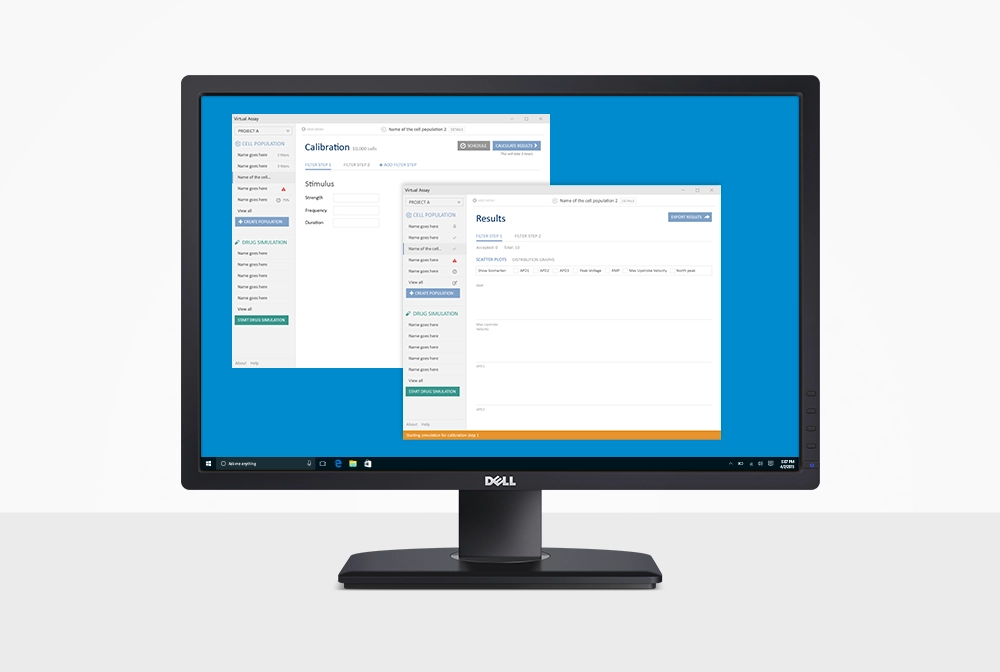You are here:
- Home
- >
- Knowledge Hub
- >
- Case Studies
- >
- Virtual Assay.
The use of animals to test new drugs is controversial. And one of the most common reason for failure, even after all these tests, is the discovery that it can cause unexpected heart complications in patients.
Professor Blanca Rodriguez, Dr Alfonso Bueno-Orovio and NC3RS award-winning doctoral student Ollie Britton from the University of Oxford developed software that tests new drugs in a virtual environment to identify potential complications right at the start of the process.

The work, funded by an EPSRC Impact Acceleration Award and supported by Oxford University Innovation, models the impact of drugs on the electrical behaviour of heart cells, in particular, a phenomenon known as the action potential, which is involved in the coordinated contractions of heart muscles. Previous attempts only used one cell model, and as a result were seen as unreliable. Rodriguez, Bueno-Orovio and Britton modelled the effects on a whole population of cell models that exhibit the full range of responses seen in real cells.

OCC was brought in to transform the research software into a user-friendly commercial software package, called Virtual Assay, that would pass the rigorous testing of the FDA. The OCC team needed to extend the functionality and flexibility of the codebase and redesign it to work much faster by using the multi-core processors of a modern PC. An attractive web-like front end makes it easy to use in a commercial laboratory environment.
Animal testing won’t end tomorrow or even next year, but this could be the beginning of the end.
